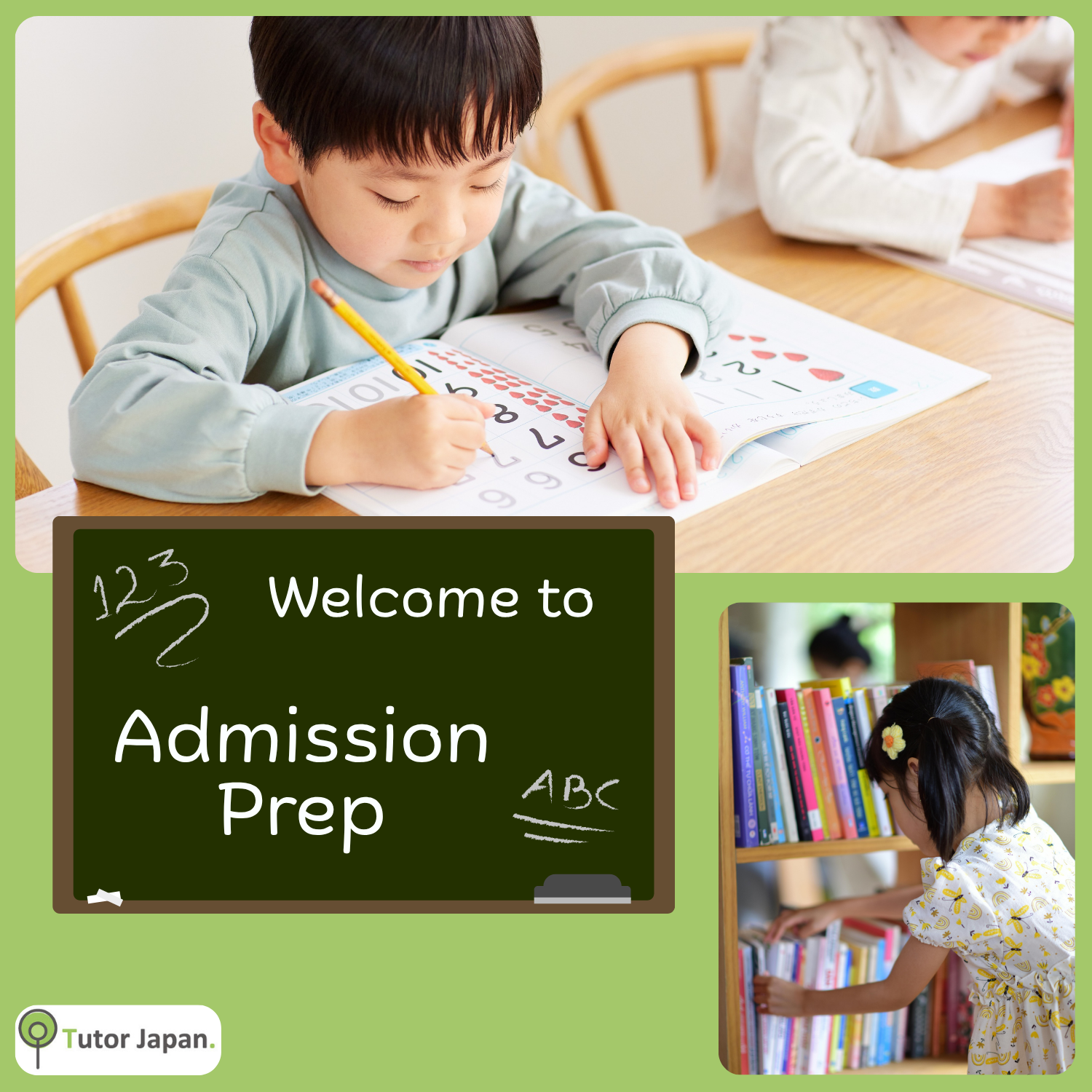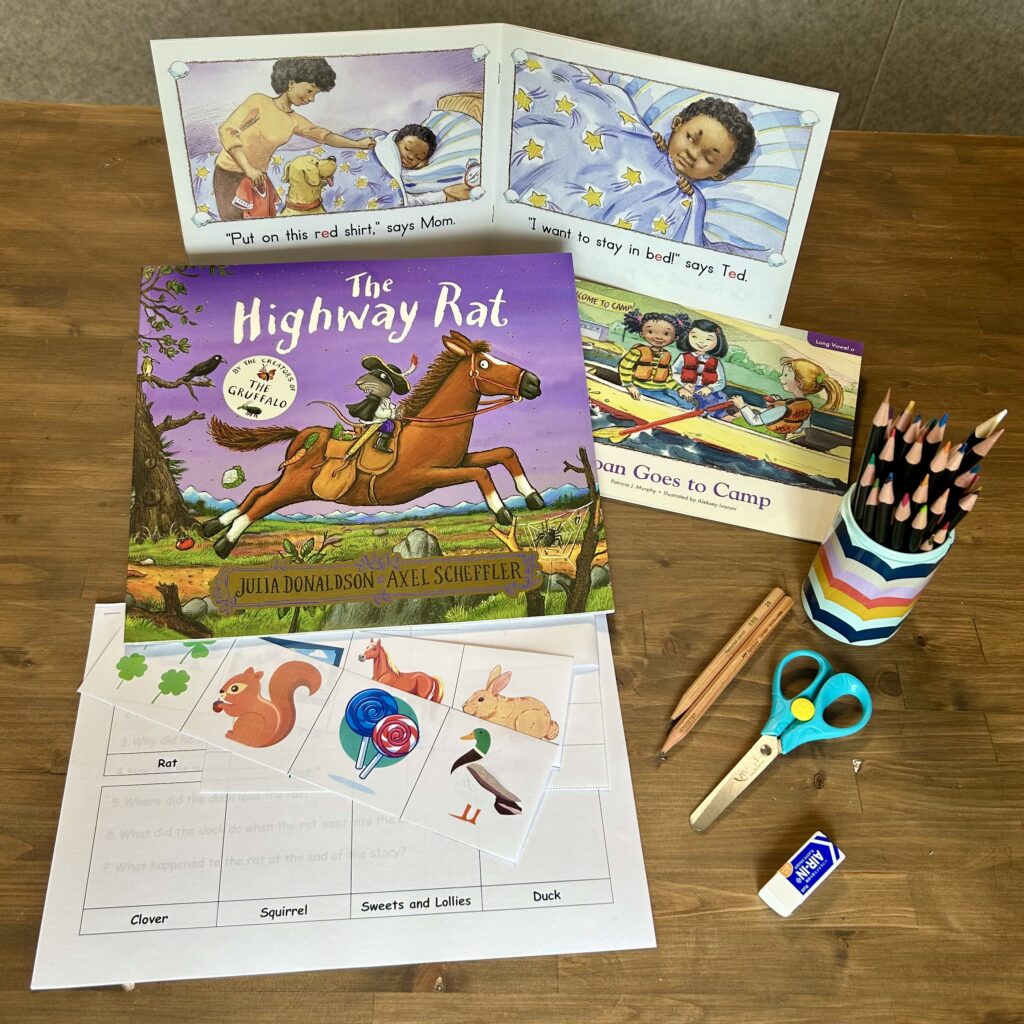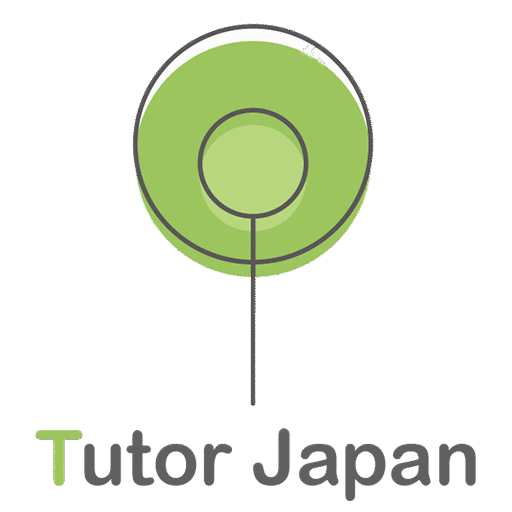
Are you interested in applying to an international school? Worried about the application and interview process? Do you wonder how to help prepare your children for application and entrance assessments? At Tutor Japan we have years of experience guiding families successfully through the application to enter international school. Here’s how we can help you!
Admission Preparation Classes
Every weekend Tutor Japan holds Admission Prep classes in Tokyo, in Minato-ku. These classes are ideal for children ages 3-5, and are typically held in a group setting. In addition to reading and writing skills, students practice following instructions from the teachers and good classroom behavior, which includes sitting still in their chairs, not interrupting others, and speaking up when the teacher asks a question. For many children learning in a new space like this is a first time experience. Students practice being away from their family for an hour and how to quickly say goodbye to their parents. For first-timers this can be challenging and we offer individualized support to ensure the children become more independent and confident.
What skills are needed?
For young children looking to enter international schools, the most important topics to review are phonics, motor skills, speaking skills, and counting. Let’s take a look at how we practice these skills in our Admission Prep class.
Our Admission Prep classes cover all four key skills. A typical class starts with a warm up exercise to let the children settle in and get comfortable. Activities include coloring by instruction, counting, and storytelling. Each child will be asked questions directly to check their level of understanding the activity and knowledge.
Our Admission Prep class’s main activity involves reading a book and completing a worksheet (example picture below). Children listen carefully to the story read by the teacher, and aswer questions about the storyline, for example “What happened first?”, “What was person a boy or a girl?”, “How many animals did you see?”
The worksheet goes along with the topic and vocabulary of the book. Children improve their fine motor skills by cutting out pictures and pasting them onto the worksheet. Our motor skill focus also includes how to hold a pencil proper and how to trace letters and shapes on paper.

Also, students expand their vocabulary with key words from the book. The children deepen their understanding of phonics by reading alphabet letters aloud, finding and recognizing words, and matching sentence strips together to form the summary of the story. After each class, parents receive a report of what was done during the class, including individual student feedback.
Our Admission Prep classes held are in-person on Saturday and Sunday mornings at Dandelion Montessori School, near our office in Azabu-Juban. Please email us if you are interested in joining!
Interview Preparation
Most international schools include interviews with the student and/or the parents when applying to the school. We offer individual lessons to prepare families for these interviews, both in-person and online. With our sample question guide, students and their parents can practice speaking skills with mock interviews, with targeted feedback on your answers and pronunciation. For example, Tutor Japan also suggests different phrasing should a particular word be difficult to pronounce, so that you and your family can express your ideas as smoothly as possible. Some schools also have activities that children must complete during the interview process, which feature the same phonics, motor skills, speaking skills, and counting skills that we practice at our Admission Prep sessions.
Our clients have previously successfully been accepted into a variety of international schools in Tokyo: St. Mary’s International School, The American School in Japan, Nishimachi International School, Tokyo International School, Shinagawa International School, Dandelion Montessori School, and many more. Please contact us if you have further questions!
What Can You Do at Home with Your Child?
Here are some activities you can do at home with your child grow their skills. Because students’ behavior inside the classroom is as important as their reading and counting knowledge, students can benefit from practicing sitting at a table without moving around for 15 minutes. Children can be given a timer and an activity, for example coloring a picture or looking at a book. The goal is for children to get used to sitting still and engaging with one activity for a set time.
Another useful activity is reading books together and discussing the storyline. This helps build your child’s speaking skills and you can test if they were engaged with the story. When reading a book, you can also give your child prompts to keep them involved. These can vary from pointing out to different items in the pictures to asking them to count items or saying which color items are. Here are some examples:
- Where is the dog in the pictures?
- How many birds do you see?
- How many people are in this family?
- What color is this car?
- Do elephants have big ears or small ears?
To practice motor skills, you can ask your child to cut out shapes on the line, or color within certain areas. Children also benefit from practicing writing letters and to get used to holding a pencil. An easy activity is writing the name of everyone in the family or the child’s pet or favorite animal.
Let us know how your study practice at home is going! Please ask our tutors and team after each lesson for ideas and suggestions!
